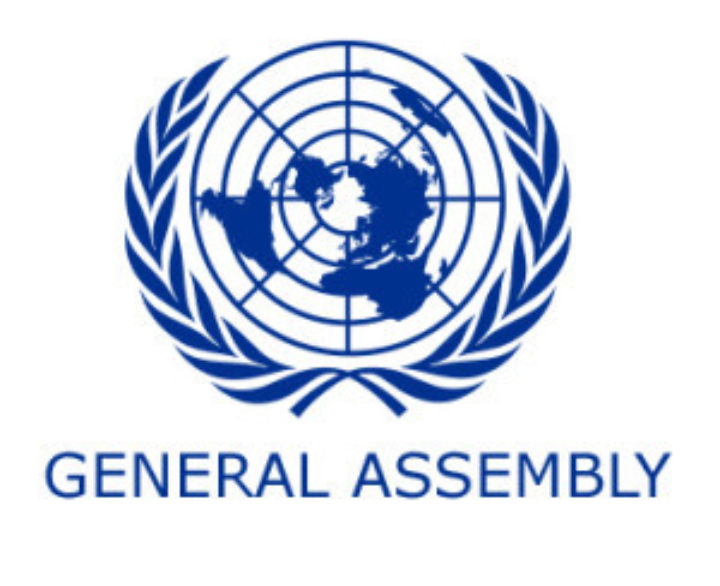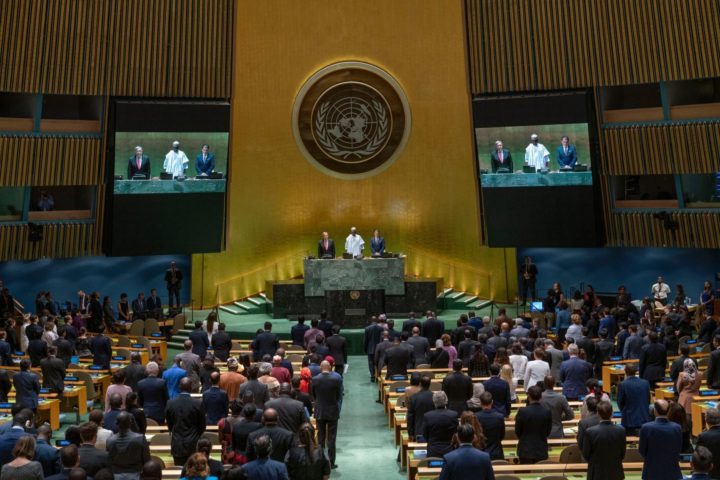United Nations General Assembly: What is it and why is it relevant for COP26?
Being COP26 president has put a spotlight on the UK’s international role in the year ahead, including at this week’s United Nations General Assembly. This blog explains.
By Alison Doig
Share
Last updated:

Every September for the past 75 years, world leaders have stood up in New York and given a short address to the world at the United Nations General Assembly (UNGA). This year the lockdown has not stopped this annual parade of leaders, but of course most Heads of State are giving their speech from their own country to a ‘virtual’ general assembly.
So, what is the UNGA? Can it have an impact on the climate negotiations and what will happen at COP26 next year?
UNGA is one of a series of international meetings that happen every year, admittedly with some gaps in 2020, which also include G7, G20, Davos and the climate negotiations (the COPs). In 2021 the UK will host both the G7 meeting of the world’s big global economies and the COP26 climate negotiations in Glasgow in November. This gives the UK a unique opportunity to take a role in leading international action on economic recovery from the pandemic and climate change. It also puts the spotlight on the UK’s international role in the year ahead, which has already started at this week’s UNGA.
UNGA is the annual meeting of the United Nations under the guidance of the UN Secretary General, António Guterres. Comprising all 193 Members of the United Nations, it provides a unique forum for discussion of the full spectrum of international issues. The central part of UNGA is a plenary event with speeches from Heads of State on the international issues and domestic responses that are critical to their own country. Often it is a platform for political point scoring where there are specific inter-country tensions.

The Assembly considers current issues of critical importance to the international community, with health and economic recovery high on the agenda this year. But climate change is an increasingly present theme for many countries. Already, the Premier of China, Xi Jinping, has made a critical announcement that the country will be carbon neutral by 2060; a vital step from the world’s biggest emitter.
There are also special high-level events at UNGA which give focus to key issues. This week Prime Minister Boris Johnson presented at a high-level roundtable on climate action hosted by the UN Secretary-General. He announced, ‘climate action cannot be another victim of coronavirus’, and ‘the UK will lead by example, keeping the environment on the global agenda and serving as a launch pad for a global green industrial revolution’.
There had been expectations of a few other specific announcements from the PM, such as an early phase out date for petrol and diesel cars, and on international investment in clean energy. But for now, the PM has kept us waiting, perhaps leaving these to be announced as part of the build-up to COP26.
The final component of this year’s UNGA is a ‘Biodiversity Summit’. Here leaders’ dialogues will address the issue of harnessing science, technology, innovation, and partnerships to protect and conserve biodiversity. Again, the PM will speak at this event and will sign a leaders’ declaration supporting action for people, planet, and the climate.
In the fringes of UNGA each year, New York City hosts its own Climate Week which offers a programme of side events and seminars on climate and energy issues. The ECIU took advantage of this year’s virtual event by hosting a seminar linking the climate and biodiversity agendas with presentations on ‘best practice for natural climate solutions in the race to zero’.
Undoubtedly, there will be more markers on the way to COP26. Critically, the UK will host an event on the 5-year anniversary of the Paris Agreement on the 12th December where the UK has asked leaders to announce new and enhanced Nationally Determined Contributions (NDCs) and net zero targets. In this respect, this year’s UNGA has set the stage for UK international leadership in the year to COP26.
Share